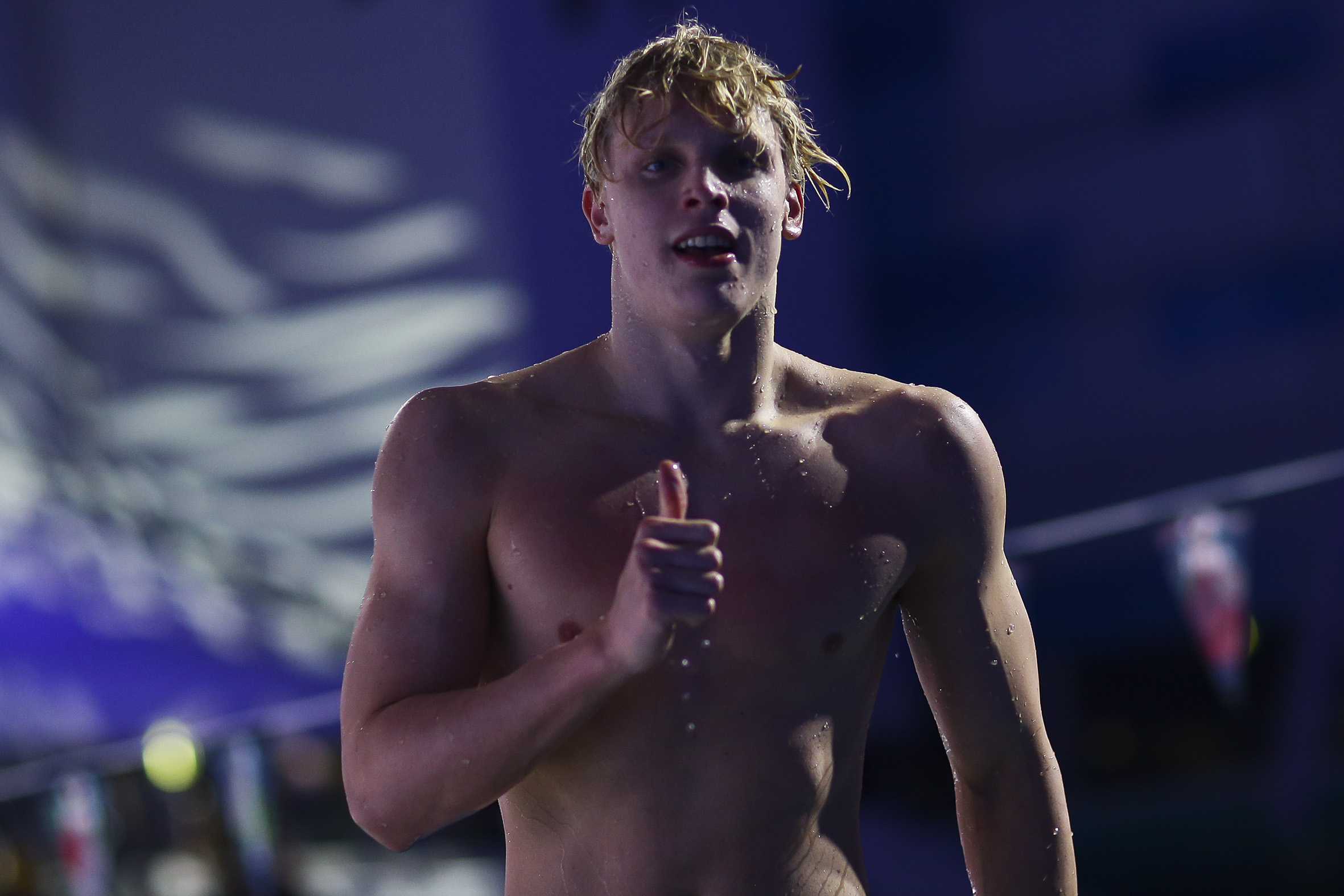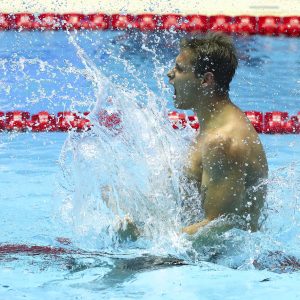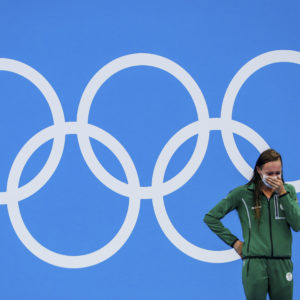Golden future beckons for swimmer Matt Sates
The teenager has amassed loads of medals, and most of them are gold. Having won some money at the World Cup, he now feels he is free to dedicate himself fully to swimming. His next goal? Olympic gl…
Author:
29 January 2022

When Matt Sates commented in his post-event TV interview in November last year that the previous month of racing had been life-changing it was no exaggeration.
After four legs of the Fina World Cup, the 18-year-old swimmer emerged with 13 individual golds, four silvers and one bronze medal, securing the overall title. In addition, he broke three junior world records and walked away at the end of his month-long campaign with around R2 million. In a sport that offers no money at all to its athletes in South Africa, it is a handy sum.
The Pietermaritzburg swimmer is not the first South African to claim the overall World Cup title. Of the last 16 editions of the competition, the men’s title has been won by South African swimmers 10 times. Four swimmers have been involved in claiming those titles and it is an illustrious list of Olympic gold medallists: Ryk Neethling (2005 and 2006), Cameron van der Burgh (2008, 2009 and 2015) and Chad le Clos (2011, 2013, 2014 and 2017). And now Sates.
Asked why South Africans have traditionally been such a force on the circuit, Neethling said: “[We were] motivated by the prize money … Because we don’t get similar support to top-tier countries, we’ve always been dependent on World Cup prize money to fund the rest of the year. If you are one of the top-10 swimmers at the World Cup you can really make some good money.”
Related article:
For Le Clos, it certainly started out as a financial campaign, but the motivation has changed somewhat along the way as he picked up more personal sponsors. The former Olympic champion collected his 146th World Cup gold in the 200m butterfly in Berlin in October. That’s by far the most of any male swimmer in World Cup history.
“In recent years I’ve done World Cups because I’ve won the most. I’ve won four. No one has done that from the male perspective; so I do it for legacy now – to be one of the best short course swimmers ever. But of course the money does help. We don’t get any in South Africa so I think it’s important that we try and make money elsewhere.
“Make no mistake, I’m not saying it’s only about the money. It really isn’t, because you get amazing coverage like Matt’s getting now for winning the thing. Legacy is very important to me, but the money is important because at the end of the day, this is what we’ve sacrificed our lives for. Some of us haven’t studied, haven’t got other jobs – this is what we do full time,” said Le Clos.
Breaking through
So, life changing it certainly was for Sates. Heading to his first World Cup meet in Berlin with coach Wayne Riddin and several teammates, he and the group weren’t too sure just how expensive the trip would be. But as he started winning, the costs came down.
Riddin said: “I wasn’t sure what this was going to cost us so when I had an offer on my Microbus I let it go so that I had the money as a backup, but Fina then offered us some bonuses along the way which took the pressure off us.
“The first tournament we went to in Berlin, six of us stayed in a flat because it was cheaper … We got to Budapest and then we were offered accommodation for free. So, that was great; and then, after Budapest, they paid [for] my accommodation and Matt’s, and our flights. So, that was a relief, and it was all because he was performing like he did.”

But there was no guarantee before they left. After making a name for himself in the World Cup series, Sates was selected as a Fina ambassador for the World Short Course Championships in Abu Dhabi, from 16 to 21 December 2021.
That meant, unlike his teammates who had to cough up R25 000 of their own money to represent their country, his costs would be covered for once. But the Covid-19-induced travel ban imposed on South Africa after the discovery of the Omicron variant meant the young swimmer could not travel to Abu Dhabi after all.
As a result, he missed out on the prize money on offer, which was higher than it has ever been. The new president of Fina, Husain Al-Musallam, made good on his promise to put athletes first. He had announced a prize purse of $2.8 million [about R42 million] with a $50 000 [R754 805] bonus on offer for world-record breakers. That is after the lucrative breakaway International Swimming League (ISL) was launched in 2019, putting pressure on the international body.
“Financially, I think the ISL changed a few things. So, Fina had to relook at everything and I think they’ve done well, looking at the prize money,” said Riddin.
Looking ahead
While the in-form Sates was devastated to miss out on another chance to perform on the world stage, he’s grateful for the World Cup experience where the financial incentives came as a massive relief.
“I come from a very humble home and my mom, sister and I struggle from day to day,” he said. “My mom does her best to provide me with what I need to perform at this level but that all comes with financial stress. I feel relieved and happy that now we can sit down and put a plan together going forward.”
The reality for the future is that while his performance at these most recent World Cups was impressive, potential major sponsors in South Africa only really take notice once a swimmer has performed at Olympic level.
But Sates has shown he is well on his way to achieving that. His fellow World Cup champions have been hugely impressed by what they have seen so far.
Related article:
“I thought Matt’s performances were magnificent. It is easy to forget that he is only 18 years old. He went head-to-head with Olympic champions and came out on top a few times. I think the racing was invaluable to his confidence and evolution as a swimmer,” said Neethling.
Le Clos, who trained with Sates for a few weeks before the Olympics, added: “Matt’s performances were nothing short of remarkable. Truly one of the really special performers I’ve seen in recent years. His 200 freestyle in particular – the one I watched in Berlin – was a huge shock. He swam one of the fastest times in history and he beat one of the best racers ever.
“I could have told you guys he was going to be something special a couple of months ago when we trained together. But he’s really surprised everyone and he’s come to the world-class level a bit earlier than expected. So, congratulations to him.”
‘I could not be prouder’
For Sates himself, it is all still sinking in.
“To follow in the names of swimmers that I have admired and still admire to this day is very special to me and a great honour. Whoever would have thought that I would be named among their names. I know the hard work, commitment and training that goes into it so the respect I have for Ryk, Cameron and Chad is huge and, wow, to be ‘one’ of them … Well, it is an absolute honour and privilege and I could not be prouder.”
Sates was unsure what to expect when he headed to Europe just a few months after he returned from his first Olympics – where he celebrated his 18th birthday by reaching the semifinal of the 200m individual medley.
“To be honest before the World Cups began I had returned from Tokyo in August and was not sure I felt ready to go again. I had my reservations and, yes, my body felt tired but in my mind I knew that the World Cups were something my coach Wayne Riddin had in our plan and I trusted his plan and knew that I had to get on to the plane on the 27th [of] September and give it my all.
“My mom and I spent time reading through all the information regarding the World Cups and I remember saying to [her] that it looked like the top 20 swimmers had a chance with prize money and that to be in that top 20 would be worth trying for. We prayed about it. Our flight date arrived and off we went, with little expectation for me but perhaps for my coach a bit more.
“I was absolutely amazed when I broke my first junior record. I was not expecting too much. I was a few seconds off the world record before. So, really, I just got in to race and see what I could do. Luckily for me, the best I could do ended up in a record. When one has trained so hard for so long and seeing the reward, it is a hard emotion to express. I was blessed and I was so grateful and at the moment when I realised I had broken the record I was relieved, happy and proud all together.”
Related article:
Sates managed to break junior records three times: in the 200m individual medley and 200m freestyle in Berlin, and then the 400m freestyle a few days later in Budapest.
“The World Cups gave me a lot of confidence, but I also know that you are never guaranteed as to how it will turn out exactly … Life is short and we need to enjoy every moment we can. If one can start a meet with confidence you are on the right track or in the right lane.”
Unfortunately for Sates, that lane was not at last year’s World Short Course Championships. But he will have the Commonwealth Games and other championships to target this year.
Following him all the way will be the new-found fans he has picked up after his recent performances. That is another thing the shy teenager is slowly getting used to.
“I have to say it was quite overwhelming. My Instagram followers doubled and there was so much being discussed about me on social media. I enjoyed being part of the conversation and felt proud. I try not to get too caught up with it all, but the interviews I had with a few people overseas were great and I was happy to be a part of it all. I look forward to what the future holds.”



